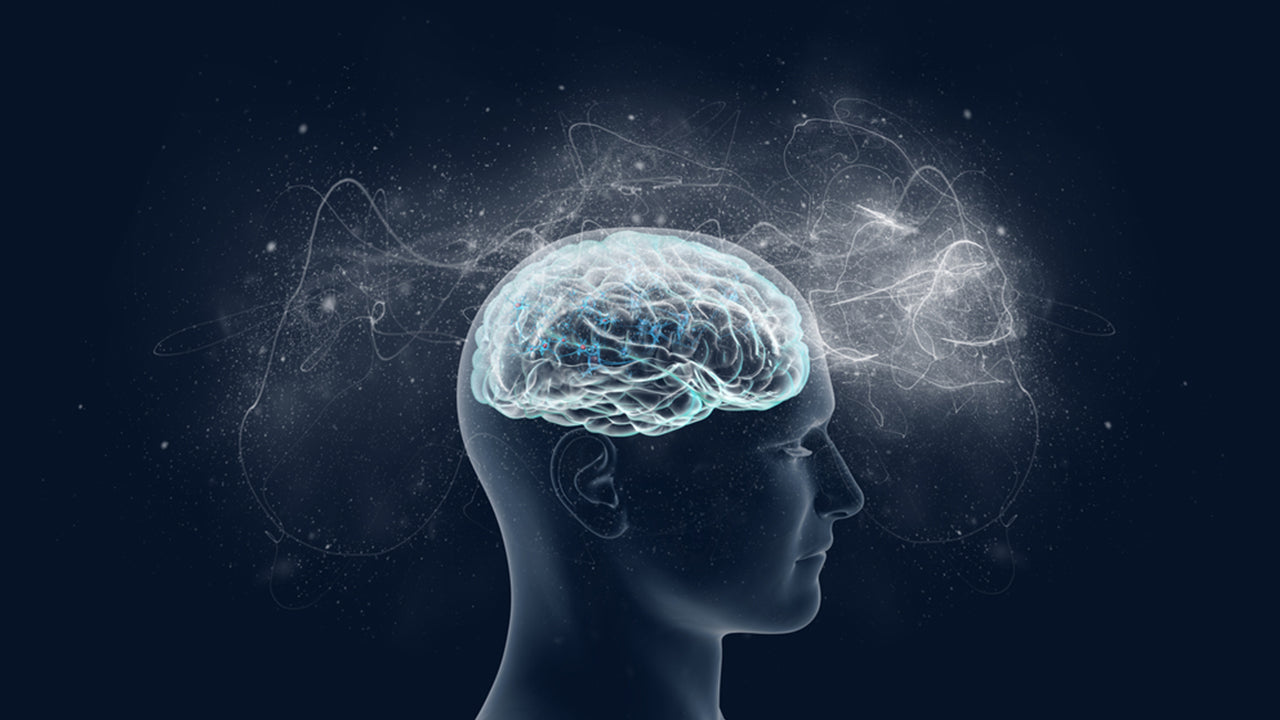Encephalitis: What Causes Inflammation of the Brain?
 By: by Amino Science
By: by Amino Science

Inflammation is a vital response of the body to injury and infection. Without it, the immune system wouldn’t intervene to heal damaged tissue or fight off dangerous pathogens. When the inflammatory process is working smoothly, it helps us conquer acute illnesses, such as upper respiratory infections. But when it goes awry, chronic inflammation can lead to diseases such as rheumatoid arthritis and heart disease. Sometimes inflammation even affects the brain. And when inflammation of the brain occurs—but the spinal cord remains unaffected—it’s called encephalitis.
What Causes Inflammation of the Brain?
While the exact cause of encephalitis isn’t always clear, most cases are associated with viruses that have the ability to cross the blood-brain barrier—the semipermeable membrane surrounding the brain—and infect the central nervous system. Viral infections that have been known to cause encephalitis include:
- Herpes viruses:
- Herpes simplex virus (HSV)
- Epstein-Barr (causes mononucleosis)
- Varicella-zoster (causes chickenpox and shingles)
- Enteroviruses:
- Poliovirus
- Coxsackievirus
- Mosquito-borne viruses:
- West Nile
- La Crosse
- St. Louis
- Tick-borne viruses:
- Powassan
- Lyme disease
- Rabies virus
- Viruses generally associated with childhood:
Even though viruses are the main cause of encephalitis, the condition can also be the result of bacteria, parasites, noninfectious causes like drug allergies, demyelinating conditions such as multiple sclerosis, and autoimmune diseases, including a rare condition known as anti-NMDA receptor encephalitis, which was only recently identified in 2007.
Anti-NMDA receptor encephalitis was largely brought to public attention by the memoir Brain on Fire and can result in a number of bizarre psychiatric symptoms, which has led experts to speculate that the disorder most likely explains the cases of so-called demonic possession that have been documented over the centuries.
Types of Encephalitis
There are two broad types of encephalitis, and which kind you have depends on how the infection attacks your body and how your body responds.
- Primary encephalitis: The primary form of encephalitis occurs when the offending pathogen directly infects the brain.
- Secondary encephalitis: The secondary form of encephalitis results when an infection occurring elsewhere in the body triggers an abnormal response in the immune system in which both the substance causing the infection and healthy brain cells are attacked. As this form of encephalitis often appears 2 to 3 weeks after the initial infection, secondary encephalitis is also known as postinfectious encephalitis.

Symptoms of Encephalitis
Symptoms of brain inflammation can range from mild to severe. According to the National Institute of Neurological Disorders and Stroke (NINDS), benign forms of encephalitis may present as mild flu-like symptoms. According to NINDS and the Mayo Clinic, those who do have symptoms often experience some of the following:
| Flu-like symptoms: | Brain fog | Loss of consciousness |
|---|---|---|
| Fever Headache Muscle aches Joint pain Fatigue Weakness |
Confusion | Seizures |
| Agitation | Double vision | |
| Hallucinations | Impaired judgment | |
| Difficulty hearing or speaking | Memory loss | |
| Partial paralysis or loss of sensation | Personality changes |
In cases of encephalitis involving young children, symptoms may also include:
- Nausea
- Vomiting
- Stiffness
- Loss of appetite
- Irritability
Diagnosing Encephalitis
After obtaining a medical history and performing a physical exam, your health care provider may order a series of tests to confirm the diagnosis of encephalitis. Tests commonly used to diagnose the condition include:
- Computed tomography (CT)
- Magnetic resonance imaging (MRI)
- Spinal tap
- Brain biopsy
- Urine or blood tests
- Electroencephalogram (EEG)
Risk Factors for Encephalitis
According to the Encephalitis Society, approximately 250,000 cases of encephalitis have been diagnosed in the United States over the last decade. While that equates to only about 1 in 200,000 cases each year, several factors are known to increase the risk of developing the condition. These include:
- Age: Young children and older adults are more at risk.
- Weakened immune system: People with weakened immune systems due to conditions such as HIV, certain drugs, illnesses, or poor nutrition are more at risk.
- Geographic location: People who live in areas where mosquito- and tick-borne diseases are common are more at risk.
Complications of Encephalitis
Most cases of encephalitis are relatively mild, and those affected generally recover within a few weeks with no long-term side effects. However, in severe cases, the resulting brain damage can lead to coma or even death. Other less life-threatening complications can occur as well and may persist for months or years. These include:
- Memory problems
- Fatigue
- Personality changes
- Speech and swallowing issues
- Epilepsy
- Mood disorders
- Attention and concentration problems
- Balance and coordination issues
People suffering from these types of long-term side effects will need additional therapy to improve functioning. Types of therapy that might be required include:
- Physical therapy
- Occupational therapy
- Speech therapy
Encephalitis Treatment
Because encephalitis is considered a serious medical condition, even mild cases require hospitalization and close monitoring. Beyond that, specific care will be determined based on age, overall health, medical history, and disease severity. Treatment will also focus on addressing the underlying cause and symptoms and supporting overall well-being.
Mild cases of encephalitis may be treated with:
- Bed rest
- Fluids
- Headache and fever medications
If the encephalitis is found to be the result of bacteria or fungi, the appropriate antibiotic or antifungal medication will be instituted.
Likewise, cases resulting from viruses are usually treated with antiviral medications even though not all viruses respond to antivirals. This is because the risk of severe complications with encephalitis, coupled with the fact that the specific virus may never be identified, leads many health care providers to opt for antivirals as a precaution.
Supportive treatment for severe cases of encephalitis may also include:
- Intravenous (IV) fluids
- Steroids
- Anticonvulsant medications
- Anti-inflammatories
Amino Acids for Encephalitis
Amino acids are well known as building blocks of protein and are needed for proper functioning of the entire body, including the immune system and brain. Some amino acids also offer anti-inflammatory and antiviral benefits.
Interestingly, recent research has even suggested a link between Alzheimer’s disease and HSV—one of the viruses known to cause encephalitis. In addition, like Alzheimer’s, herpes simplex encephalitis may lead to long-term memory loss. However, the amino acid lysine has the ability to suppress replication rates of the herpes virus and may therefore be a valuable addition to encephalitis treatment.
Amino acids work in concert with each other, and taking a single amino acid supplement can throw this balance off and cause unwanted side effects, including moodiness or muscle loss. To benefit from amino acids while keeping blood levels balanced, supplement with a complete host of amino acids in scientifically optimized ratios.
Recovering from Encephalitis
As you begin the process of recovering from encephalitis, it’s especially important to focus on ways to improve your overall health and help decrease levels of inflammation in the body. To this end, making dietary changes with the ability to reduce chronic inflammation may be particularly helpful. Some of these dietary changes include:
- Eating more antioxidant-rich foods
- Eating less red meat
- Avoiding refined or processed foods
- Cooking with healthy oils
- Eating more healthy fats
- Drinking plenty of filtered water
According to the Milton S. Hershey Medical Center, the following supplements and herbs may also be helpful in rebuilding the body after encephalitis:
- Omega-3 fatty acids
- Vitamin C
- Probiotics
- Green tea
- Cat’s claw
- Garlic
- Astragalus
- Elderberry
Finally, it’s important to remember that early diagnosis and treatment are crucial for preventing potential complications of encephalitis, so be sure to seek immediate medical attention at the first sign of severe headache, fever, or altered consciousness.


Up to 25% off Amino
Shop NowTAGS: conditions
Join the Community
Comments (0)
Most Craveable Recipes




 833-264-6620
833-264-6620



















